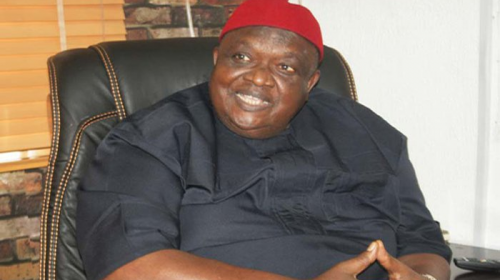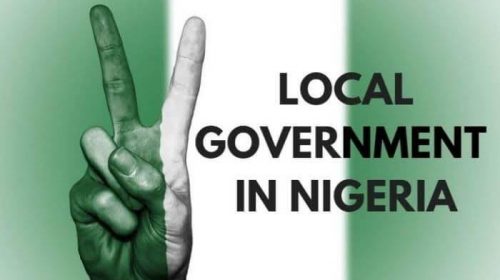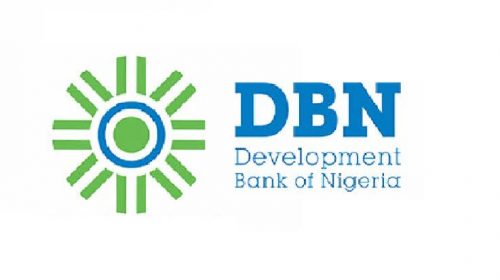How Buhari, Amaechi Excluded South-East From National Railway Master Plan

President Muhammadu Buhari’s aclaimed forthrightness was recently demonstrated in Enugu where he openly admitted that South-East was not reckoned with in the railway development master plan, for which the administration has burdened the whole country with a $7.5 billion (N2.8 trillion) loan from China.
While on a campaign stop in Enugu just nine days to the February 16 presidential election, Buhari had told the bewildered crowd at Nnamdi Azikiwe Stadium that it would be difficult for him to convince his appointees that make up the Federal Executive Council to approve the inclusion of the Southeastern corridor in his rail master plan.
“Amaechi has created problem for me. He has made you people a promise and I don’t know how to fulfil it. But I can see how I will fulfil it by getting the Federal Executive Council members to approve it. The promise Amaechi made was not presented to the FEC, noting that it would have been proper to get approval from FEC before making it open but added that he would do his best to make FEC members see the need for it,” Buhari said.
It was a strange statement in a zone where he got a poor vote return in 2015 and where he has faced strident allegations of undisguised clannishness, discrimination and unfair treatment. It was also very hypocritical coming from a president that approved the building of a rail line not just to his Daura hometown, but extended it to Maradi in Niger republic, a decision that makes no economic or moral sense. And there he was, making it seem as if he had ceded his executive powers to the ministers he appointed.
Rotimi Amaechi, Minister of Transportation, had in his earlier address at the campaign rally promised that a railway line would be constructed to link the South-East zone to the northern part of the country.
Months before the Enugu revelation, the exclusion of the Southeast from Buhari’s railways master plan had even been unveiled by the same Amaechi. Appearing before the Senate Joint Committee on Land Transport, and Local and Foreign Debts, chaired by Sen. Gbenga Ashafa, on October 2, 2018, to provide answers why the zone was excluded from the railway development plan, Amaechi had gotten away with prevarications, ambivalence and outright lies.
“The law passed by the National Assembly in terms of public procurement is very tedious and not easy to conclude; it takes a very long time. We have met with the consortium handling the project for nearly two years. Secondly, in that meeting we had in 2017, I reassured our people that they are not more Igbo than I am,” the minister told the committee.
Although his explanation flew in the face of logic, fortunately for him, the committee consisted of a motley group of senators with diverse interests and especially a number of southeast senators lacking the courage to advance the cause of their people.
The minister also told the committee that railway projects are capital intensive, noting that the Federal Government did not have sufficient fund to implement the project across the country at the same time. He explained that following the paucity of funds, government decided to adopt a systematic approach in the project execution.
However, in August 2017, Amaechi had revealed that the federal government has approved rail lines that would run from Port Harcourt to Maiduguri, Kano to Maiduguri, Makurdi to Jos, Gombe to Yobe to Borno, Jigawa to Niger Republic. Vanguard newspaper and The Cable, an online journal, had on August 25, 2017 reported Amaechi as saying that Buhari gave the approval alongside the one for the extension of the line from Kano to Katsina, Daura and onto Maradi in Niger republic.
In February 2018, the federal government had announced that it had secured a $7.5 billion loan for the construction of standard rail gauge from Lagos to Kano. Amaechi said that $1.4 billion of the loan was for the construction of the rail gauge from Lagos to Ibadan, while $6.1 billion would be used on Ibadan–Ilorin–Minna-Kaduna– Kano line.
The fact that actual execution of the rail development and modernisation plan involving 10 lines has taken off only in the northern and southwest lines has reignited the perception that the southeast is being deliberately neglected.
Questions are also being raised on the reasons adduced by Amaechi for leaving out the southeast, as his reasons are ridiculous and untenable, especially, as the tough procurement process he mentioned was there when the Lagos-Ibadan, Daura to Maradi in Niger Republic corridors were awarded. Same thing applies to other lines, after all, the heavy burden of repaying the huge loans secured for developing the lines will ultimately be carried by the entire country.
Businessandmaritimewestafrica






Leave a Reply